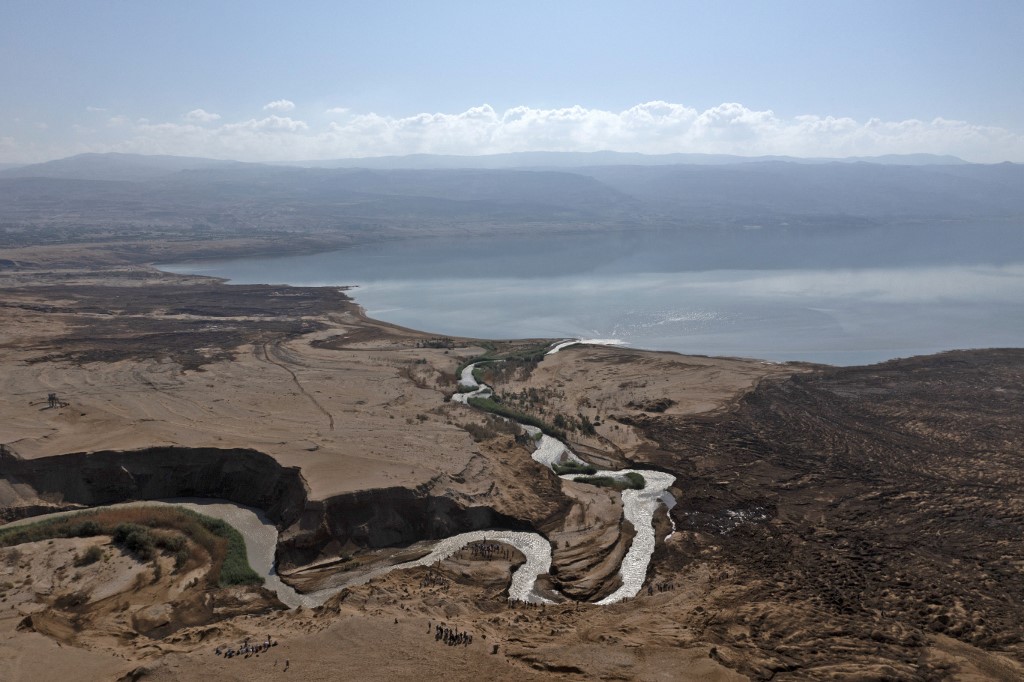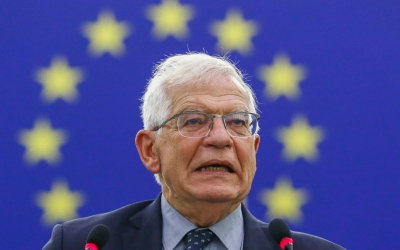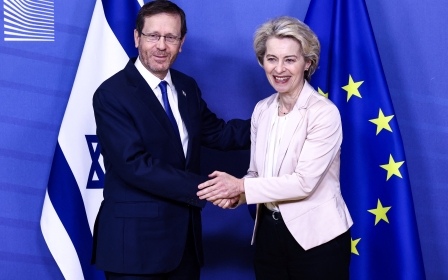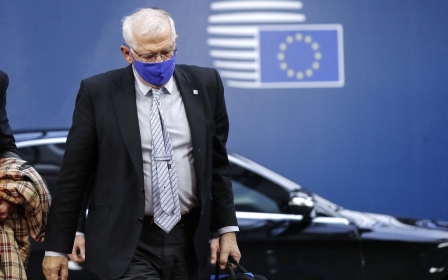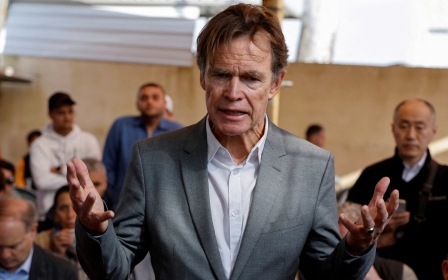'Making the desert bloom': Why Europe clings to the colonial mindset
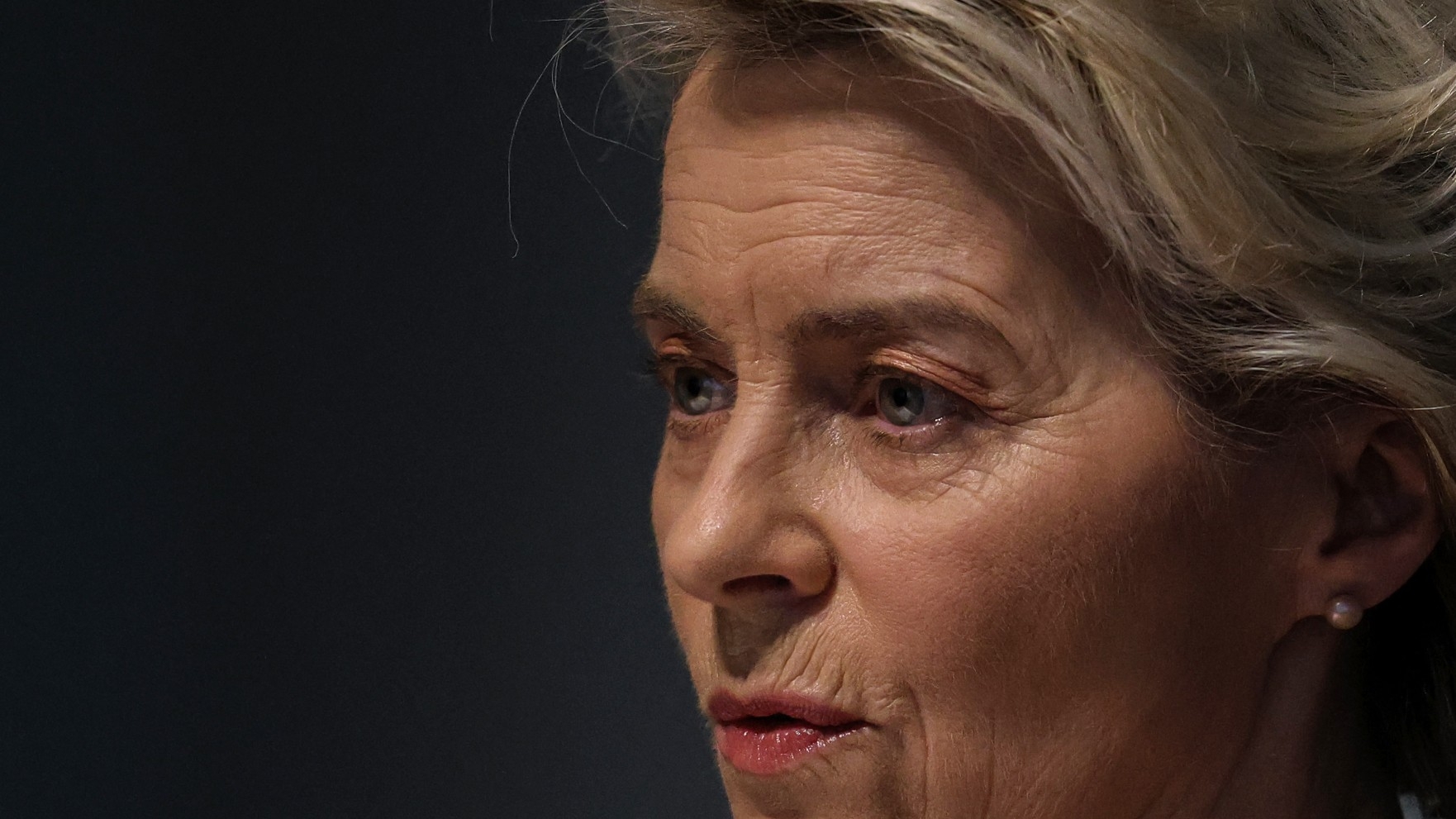
For 75 years, Palestinians around the world have commemorated the Nakba (catastrophe), which refers to the ethnic cleansing and destruction of Palestinian communities in 1948 to make space for an exclusivist state for European Zionist settlers. The consequences are still felt by Palestinians today.
On this occasion, Jewish Israelis also celebrate their independence. Europe has both a direct and an indirect role in the dispossession of Palestinians and the founding of Israel, so it is not surprising that many European officials join in celebrating this settler-colonial project.
In this context, European Commission President Ursula von der Leyen last month issued a video message declaring: “Seventy-five years ago, a dream was realised with Israel’s Independence Day. After the greatest tragedy in human history, the Jewish people could finally build a home in the Promised Land.
“Today, we celebrate 75 years of vibrant democracy in the heart of the Middle East; 75 years of dynamism, ingenuity and ground-breaking innovations. You have literally made the desert bloom.”
Her statement was awash with Zionist propaganda and falsehoods that have been thoroughly debunked by many renowned historians, including Israeli ones. It is unnecessary to discuss this aspect further here. The only accurate point concerns what she called “the greatest tragedy” - the Holocaust - without naming the perpetrators.
New MEE newsletter: Jerusalem Dispatch
Sign up to get the latest insights and analysis on Israel-Palestine, alongside Turkey Unpacked and other MEE newsletters
This horrific event took place in the heart of Europe. It was designed and carried out by European actors, fuelled by racial branding that divided humanity into superior and inferior races, inflaming antisemitism across Europe and forcing millions of Jewish citizens to leave or be exterminated.
Von der Leyen’s statement echoes the typical Euro-colonial discourse. The significance of her words lies not only in their content, but also in the colonial rationality, racism and ideological imagination underlying them.
The 'promised land'
Let us recall that European settlers since 1492 viewed invaded territories as the “promised land”, using biblical mythologies to justify colonial dispossession and enslavement. They, too, claimed to have made the seized land bloom through their superior ingenuity, innovation and labour.
This same Euro-modern and colonial rationale enabled and legitimised the colonisation of much of the world, while enslaving and genociding millions of people in Africa and the Americas.
This mentality has also enabled Israel’s present-day settler-colonialism and apartheid system in Palestine. From this perspective, Europe and Israel have “shared values” - albeit racialised and settler-colonial values.
Von der Leyen showed total indifference towards Palestinian suffering and violations of their human rights
In her statement, von der Leyen showed total indifference towards Palestinian suffering and violations of their human rights. This disregard for the Palestinian people is a manifestation of “anti-Palestinian racism”, which Palestinians feel deeply.
This disregard has a function: it dehumanises people and reduces their suffering and interests to the point of insignificance. Only then does Israel appear as a democracy.
This underlying attitude is consistent with the racialised structures of power that question the very humanity of colonised and subjugated peoples. Racism is, after all, an institution that categorises certain humans as inferior and places them in positions of subordination to promote the interests of more “worthy” races.
Israel appears to be a “vibrant democracy” only to those who do not see Palestinians as humans with equal rights and aspirations. A state that enshrines in law the systematic exclusion and subjugation of 50 percent of its population is not a democracy, but an apartheid state. While such discrimination has been present in Israel since its founding, it was bolstered through the 2018 nation-state law.
Zionist myths
Making the “desert bloom” has long been one of the pillars of Zionist myth-narrative. Never mind the fact that Palestine has historically been among the most fertile parts of the region, with vibrant cultural, economic and multi-faith life for centuries, even millennia. But this myth is not unique to Zionism; it simply emulates other European colonial settlers who used similar rhetoric to justify the dispossession of indigenous peoples.
Only a colonial mindset seeks to cultivate the desert. The Zionist project to “make the desert bloom” was a colonial and violent undertaking against nature and the indigenous population. This project involved not only the dispossession of Palestinians of their land, but also the theft of their freshwater resources.
For decades, Israel has been diverting water from the Jordan River basin to projects in the Naqab desert, intensifying water scarcity and desertification, which has dramatically altered the local ecosystem. The truth is that the purported “desert blooming” was made possible through the theft of the indigenous population’s water, turning their once-fertile land into a desert.
To Palestinians, as to other indigenous peoples, the lands that European and Zionist settlers perceived as wilderness, wasteland or desert were actually rich environments suitable for non-colonial ways of living, which have been practised and refined over generations. This is particularly evident in the case of the Palestinian Bedouins living in the Naqab, who have coexisted with the desert for generations, despite ongoing Israeli policies that aim to force them to leave their land.
Racist imaginations
While it may be tempting to view colonial tropes as archaic relics of the past, in reality, this discourse continues to shape contemporary colonial and neo-colonial relationships, as well as the imaginations of influential EU policymakers.
Last October, von der Leyen’s colleague, EU foreign policy chief Josep Borrell, also made colonial assertions. He divided the world into the well-tended “garden” of Europe and the “jungle” of “the rest of the world”.
Again, what matters is the underlying thought structure. The garden/jungle imagery is not a mere slip of the tongue but rather reflects centuries of discourse and practices that have dehumanised non-Europeans.
This pattern of geographical imagination served as a functional consciousness that colonial Europeans used to justify their moral and legal rights to conquer, subdue, enslave and seize the lands of non-European peoples. The land was considered to be “empty”, part of the “state of nature”, the jungle, or promised by God.
Borrell’s statements showed a blatant disregard for the agency of non-European peoples. Like von der Leyen, he apparently overlooked the fact that the so-called peaceful and civilised garden of Europe was built on the racial discourse of “Black horror” during the interwar period, with the objective of exploiting Africa.
Such moments expose the resilience of colonial, ideological, religious and racist geographical imaginations, even among the highest echelons of the EU’s policy-making apparatus. This raises doubts about the sincerity of its rhetoric on the so-called two-state solution and human rights in Palestine and beyond.
To be taken seriously, the EU - and other actors that claim to champion human rights and justice - must confront and dismantle the colonial and racial structures that enable such thought structures to persist.
The views expressed in this article belong to the author and do not necessarily reflect the editorial policy of Middle East Eye.
Middle East Eye delivers independent and unrivalled coverage and analysis of the Middle East, North Africa and beyond. To learn more about republishing this content and the associated fees, please fill out this form. More about MEE can be found here.



